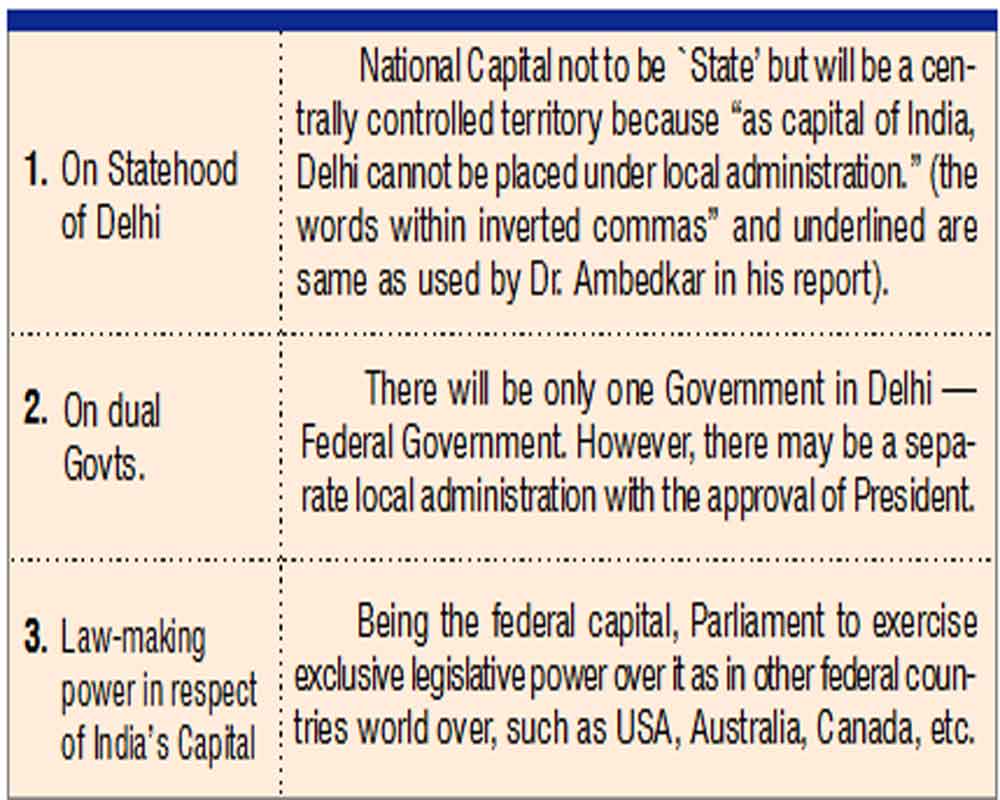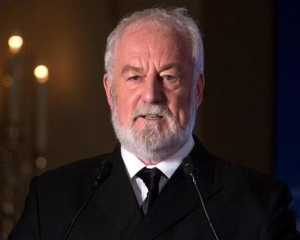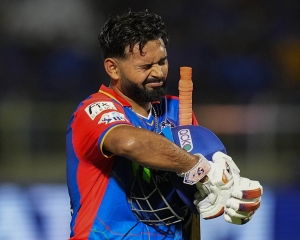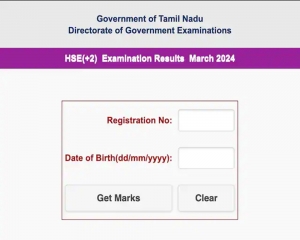The Assembly is at present agendaless and has turned into a dull, drab monotonous and uninspiring institution having no utility
By virtue of Article 239 of the Constitution, the ultimate responsibility of good administration of Delhi is vested in the President of India acting through the Administrator (Lt. Governor). Because of this provision, the Lt. Governor of Delhi is required to play a somewhat more active role in the administration than the Governor of a State.
In the matter of governance of national capital, Delhi has undergone several experiments in the past. Before coming into force of the present experiment, Delhi had in1966 what came to be known as the Metropolitan Council set up which was brought into force under the DelhiAdministration Act 1966.This Act had provided for the following three institutions - Delhi Metropolitan Council, Chief Executive Councillor, and Delhi Administration. The Council was an elected body which was not competent to enact any law but could only recommended to the Central Government appropriate legislation. The Chief Executive headed a 4-member Executive Council to aid and advise the Lt. Governor in matters of administration. The Administration was subordinate and subservient to the Central Government.
Due to constant clamor for self-government and statehood in Delhi, in 1987 the Union Government appointed a committee to suggest proper administrative and political set up for Delhi. It recommendedDelhi be given a Legislative Assembly and a Council of Ministers to aid and advise the Lt. Governor. So, the Metropolitan Council became the Legislative Assembly, the Chief Executive became Chief Minister, and the Administration became the Government (of NCT of Delhi).
The substitution of expressions utterly confused not only the people in general but also the political class. Everyone believed that by giving Delhi a Government, a Legislative Assembly and a Chief Minister, Delhi has been placed at par with the other States of Indian Union. Facts, however, were just the opposite. The Transaction of Business Rules which supplemented the Constitutional provisions of Article 239AA were more or less the same as were applicable on erstwhile Delhi Administration (which was a subordinate and subservant set up to the Central Govt.
What in fact was given to Delhi by the Sarkaria Commission was only an ornamental clap trap of words and expressions. Because the Transaction of Business Rules made applicable to the new setup remained more or less unchanged; hence no extra power actually stood bestowed on the new set up. Soon MadanLalKhurana who took over as the firstCM under the new set up,subsequently followed by Sahib Singh Verma,Shiela Dixit, realized that expression “ChiefMinister” was no more than a misnomer and a fancy. No real power stood conferred on the CM or the Delhi Government.
Let us have a look as to what the intent of the framers of the Constitution was with regard to nation’s capital. There were sharp differences among members of Constituent Assembly with regard to the future political set up of Delhi. Some wanted self-government and statehood. Many others favoured a centrally controlled Delhi. The President of the Constituent Assembly (Dr. Rajendra Prasad) had formally assigned thetask of finding a viable solution to the Chairman of the Drafting Committee (Dr. B.R. Ambedkar). Dr. Ambedkarfor this purpose,summoned an emergent confidential meeting of his Drafting Committee on Monday, July 25, 1949 (in the afternoon) not at its designated venue the Constitution Hall of Parliament House but at the official residence of Sardar Patel at 1, Aurangzeb Road (now re-named as APJ Abdul Kalam Road).
Pandit Jawaharlal Nehru and Sardar Patel (both non-members) attended the Drafting Committee meeting on the invitation of Dr. Ambedkar as special invitees.The following decisions inter alia in respect of national capital were taken :
(More details in Author’s soon to be released book “BhimRaoRamjiAmbedkar: Arbiter of Delhi’s Destiny” published by National Book Trust).
Of late, the LG has placed an embargo on Assembly to ask questions and move motions, resolutions, etc., on subjects constitutionally reserved for him. This has made the Assembly agenda-less. It has also turned the Assembly into a dull, drab monotonous and uninspiring institution having no utility.
(The writer is former Secretary, Lok Sabha and Delhi Assembly, Constitutional expert and author. The views expressed are personal.)


























